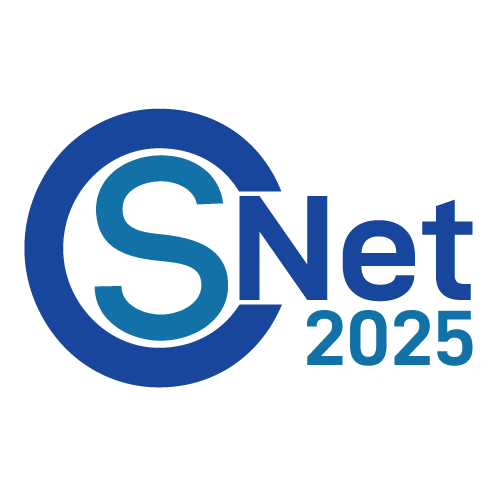Call For Papers
CSNet 2025 will center around the “GenAI and Cybersecurity” theme, encompassing both AI for Cybersecurity and Cybersecurity for AI. The theme highlights the challenges and opportunities of AI in reinforcing security and privacy within traditional cybersecurity domains such as cloud computing and cryptography. The integration of GenAI into cybersecurity represents a pivotal advancement with the potential to revolutionize how we protect and secure digital infrastructure.
AI has shown remarkable capabilities in automating and enhancing various aspects of cybersecurity. From predictive analytics that anticipate cyber threats to intelligent systems that detect and mitigate attacks in real time, AI-driven solutions are becoming indispensable. These technologies improve the efficiency and effectiveness of security measures and adapt to the evolving threat landscape, providing robust defense mechanisms against increasingly sophisticated cyberattacks.
Like any other tool or system, AI introduces its own security threats, which require the development of new security mechanisms to address them. For instance, prompt injection attacks raise important challenges for Large Language Models (LLMs), which are increasingly integrated into various applications in daily life.
Combining researchers and industry professionals at CSNet 2025 allows to forge new pathways and develop comprehensive solutions addressing topics related to AI and cybersecurity.
CSNet 2025 seeks contributions in full papers, short papers, posters, demos, work-in-progress papers, and tutorials. We are particularly interested in innovative solutions and breakthrough ideas that can shape the future landscape of cybersecurity.
CSNet 2025 is technically sponsored by IEEE and IEEE ComSoc
All accepted and presneted papers will be submitted for publication to IEEE Xplore
Authors are welcome to submit original papers that have not been published or simultaneously submitted to another venue with topics that include but are not limited to:
AI-Driven Security and Threat Management
- AI for cybersecurity: challenges, opportunities, and threats.
- AI-based security monitoring, anomaly detection, intrusion prevention, and response.
- Adversarial machine learning, secure AI model training, and adversarial mitigation.
- AI for cyber resilience, incident response, and threat hunting.
- AI-powered threat modeling, risk assessment, and automation.
- Large Language Model (LLM)-based anomaly and malware detection.
- AI for blockchain, IoT, and fog/edge computing security.
- Reinforcement learning and federated learning in security.
- Security for AI Systems (GenAI, Agentic, etc.)
Privacy and Ethical AI
- Privacy risks, preservation techniques, and AI for surveillance.
- Ethical and regulatory considerations in AI-based security.
- Secure federated learning and data protection.
Emerging Technologies and Infrastructure Security
- Cybersecurity for smart cities, grids, IoT, and cyber-physical systems.
- Blockchain, decentralized security, and secure cloud computing.
- Network infrastructure security, resilient systems, and secure protocols.
- DoS attacks, wireless security, and cryptographic key management.
Networking in the GenAI Era
- GenAI for Network Traffic Analysis and Threat Detection
- AI-Augmented Network Protocol Security
- Edge and Fog Computing Security with Lightweight AI
- Adversarial Attacks and Defenses for Networked AI Systems
- Privacy-Preserving AI Techniques for Network Data
- AI-Driven Network Forensics and Incident Response
Submitted papers should address novel challenges or industrial and standard aspects of key technologies for sustainable and intelligent AI cybersecurity solutions.














